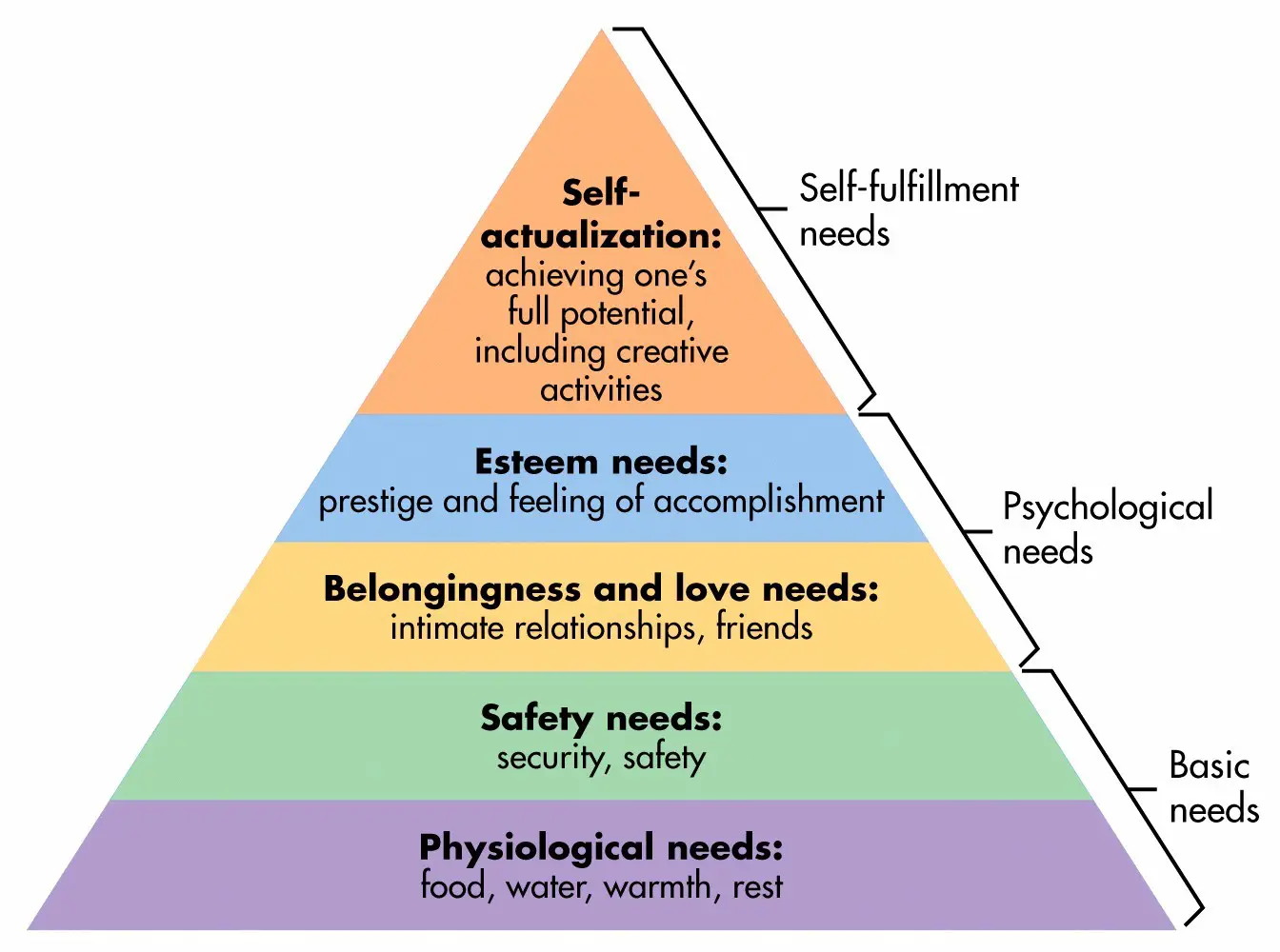Why Are INFJs Always Sad? (5 Poignant Reasons)
Aug 26, 2023

To many people it seems that INFJs are perpetually soaking in a still bath of melancholy.
Due to their often serious demeanor and absent-minded countenance giving away their relentless brooding.
The INFJ is one of the 16 Myers-Briggs personality types, making up roughly 1-2 percent of the population.
“INFJ” is an acronym which stands for Introversion (I), Intuition (N), Feeling (F) and Judging (J).
These four core characteristics describe the cognitive functions INFJs use the most to navigate through life.
As an INFJ male myself I’ve been asked many times why I seem so sad. Why do INFJs always seem sad? Let’s have a closer look!
5 Poignant Reasons Why INFJs Are Always Sad
1. INFJs tend to always be sad, because they’re drawn to beauty
A wise man once said: there’s no beauty without sadness.
A beautifully poignant observation. Perhaps, also a self-evident conclusion many INFJs have drawn in their relentless pursuit of beauty?
As exuberant creatives, romantic philosophers and idealistic visionaries at heart, INFJs tend to devote their lives to beauty in all of its forms out of a visceral existential necessity.
Witnessing awe inspiring works of art, searching for true love within the form of an enlightened relationship, contemplating the source of light and life on a daily basis.
The INFJ’s obsession with beauty goes far and wide, reminiscent of a devout treasure hunter.
Perhaps through all their encounters with beauty they’ve realized something profoundly poignant which lies at the root of their subtle background sadness.
Maybe they’ve realized that the most beautifully profound art often flowed from the deepest wells of emotional pain.
That the potential true love relationship often doesn't flourish due to bad timing and circumstances (travellers know this).
That our existence is an absolute miracle and yet ephemeral as it literally slowly fades away with each passing second.
Contemplating the passage of time evokes a feeling of sad nostalgia and a melancholic longing for a distant past that is forever gone.
An emotional phenomenon that is beautifully expressed within the Portuguese word “Saudade”.
Contemplating such deeply complicated and evocative concepts is like nourishment to the INFJ’s soul.
However, to indulge in beauty and to truly savor it, one must also acquire a taste for sadness. A flavor INFJs know all too well as dwellers of the deep.
2. INFJs tend to always be sad, because they aren’t getting their Self-actualization needs met
As fervent dreamers and practical idealists with a seemingly insatiable curiosity, INFJs are captivated by the notion of realizing one’s full potential.
This growth motivated striving toward the highest level of psychological development is what the late psychologist Abraham Maslow calls “Self-Actualization” in his hierarchy of needs theory (figure 1).

Figure 1: Maslow's Hierarchy of Needs
According to Maslow’s theory, humans move from the bottom of the hierarchy of needs (Physiological needs) upwards to fulfill the needs higher up the hierarchy of needs (Safety needs, Love and belonging, Esteem, Self-actualization) whenever they’ve satisfied a need lower down in the hierarchy.
It seems that many INFJs are very aware of their strong need to Self-actualize.
If you are privileged enough to live in a First World country today, most likely the two bottom layers of the hierarchy of needs (Physiological needs and Safety needs) are met by default (see figure 1).
A great privilege indeed, because it seems to be the foundation upon which you could begin to move towards Self-actualization.
The INFJ's Struggle to Self-Actualize
However, as many INFJs and creative personalities alike have found in their day to day lives is that in most First World countries the two bottom layers of the hierarchy of needs are made paramount in such a way that they consume almost all our time as we must satisfy those fundamental needs continuously.
So much so that there’s little to no room for the needs higher up the hierarchy, despite meeting the required fundamental needs!
A clear case example would be the proverbial landscape painter arriving home from their full-time 9 to 5 job as a barista which they need to pay their bills, but tires them too much to work on their paintings.
Another example is the musician working two day jobs to keep the lights on at home, which leaves no time for relaxed spacious solitude needed to compose their next song.
Many INFJs tend to always be sad, because as creatives they face the same problems mentioned in these examples on a daily basis.
Day jobs including the time it takes to commute usually devour such huge chunks of our time that every night we are left with a choice between lack of sleep or compromised creativity.
There’s just something so deeply perverse about spending most of your waking life in servitude to a boss in exchange for a meager wage that the visceral existential dread it produces for the INFJ is unbearable.
Now luckily, the INFJ is a tough minded personality who can still manage to get their scraps of self-development by brute forcing their personal goal achievement.
For instance by working on their craft till late night.
However, being a witness to your own unrealized potential on a daily basis due to a systemic hindrance that keeps you trapped as a slave to your bills in silent acquiescence, all the while only the company you work for benefits truly from the fruits of your youth and vitality as those slowly deteriorate is so saddening to the INFJ it’s almost traumatizing.
3. INFJs tend to always be sad, because they might feel lonely
Solitude or being alone is an essential need to the INFJ as you may know.
They thrive in it and might even pride themselves on their capacity for long stretches of self-isolation.
Two weeks can easily fly by in which an INFJ that lives by themself won’t see anyone if the circumstances allow it.
It might even be longer!
No one really knows the upper limits of the INFJ’s capacity for being alone.
Yet, I wonder sometimes.. Is it merely our introverted nature, highly sensitive senses and creativity that make us well equipped for a mostly solitary existence?
Or have we always been secretly lonely, but just got used to the loneliness over the years?
Secretly lonely
To be fair, with a prevalence of approximately 1% in the broader population, INFJs have a hard time running into other INFJs or like-minded people who can potentially become friends or lovers.
To many INFJs it became clear early on in their life that they don’t fit the norm.
Yes, we are good at being alone, but despite this quality it even gets lonely for INFJs from time to time.
Especially, when we get older and haven’t yet found that ideal beautiful partner for the long anticipated romantic enlightened relationship.
A dream partner of whom we hope that they’ll set us free from that nagging existential background loneliness and will also add additional meaning to our lives.
INFJs tend to always be sad, because in the background we have perhaps been covertly lonely since our teens or childhood even.
Despite our initial optimism about finding that ideal partner, we also gradually get more sad as we grow older while starting to doubt that our imagined ideal partner even exists.
4. INFJs tend to always be sad, because they’re boundless over thinkers
Creativity seems to be such a fundamental trait of the INFJ personality that it encompasses almost every INFJ personality trait.
Unfortunately, this can lead to a myriad of challenges.
Because, the INFJ’s creativity isn’t exclusively bound to beautiful and fruitful thoughts and ideas.
No, it seems to also manifest within the INFJ’s dark side of the mind.
Next to profound philosophies, beautiful imagined aesthetic pictures and heart-warming altruistic concepts, the INFJ’s mind can intrusively conjure up intensely anxious, depressing and disturbing thoughts with ease.

Photo by Liza Summer on Pexels
For example, vivid images of the INFJ’s loved ones being tortured.
Or the absolutely horrifying idea of eternal nothingness if life couldn’t exist ever.
The INFJ’s mind seems to be like a wild horse that takes them involuntarily on a turbulent ride into the dark lands on a whim.
To a dark place where few souls ever dare to venture.
INFJs tend to frequently be sad, because next to intrusive depressive thoughts, they also easily obsess over seemingly mundane problems.
The big presentation at work, a birthday party of that annoying family member, a bothersome trip they need to make.
INFJs are future-oriented and like to be in control.
By trying to plan and foresee the future they maintain control, which puts them at ease.
But any anticipated bothersome obstacle in the near future can cause significant distress in the perfectionistic INFJ, who would like every little problem to be solved before it allows themself to truly relax and be happy.
5. INFJs tend to always be sad, because of their heightened sensitivity & hyper empathy
INFJs dream of utopian societies where everyone flourishes while living in harmony with each other and nature.
Dreadfully so, that isn’t the picture we’re getting at all when we look around today.
Most people live lives devoid of any true joy, meaning and enthusiasm due to poverty, unequal opportunities or a taxing work life balance.
The world seems to be covered with a dense emotional blanket of melancholy and quiet desperation.
The proverbial INFJ, with its heightened sensitivity and empathy soaks up emotional stimuli around them like a sponge.
They also feel deeply sad when they sense this quiet human suffering all around them.
The INFJ’s empathy can be so strong that they may easily feel sorry and sad for many loved ones, friends, acquaintances, neighbors, strangers or inanimate objects even (like the bottom plate of a pile of plates that’s never being used while sitting in the cupboard).
Most INFJs can’t control whose energy they pick up, it just happens involuntarily.
In many cases the INFJ feels sad or depressed, because they’ve picked up that energy unconsciously from someone else or the overall environment/society they live in.
However, it’s hard to know sometimes, if it’s their own sadness or someone else’s.
Nonetheless, it puts INFJs regularly in a sad emotional state for a reason that’s often unknown to them.
As an INFJ, Introvert, Highly Sensitive Person, or Empath, do you find yourself also frequently struggling to manage your strong empathy?
Would you like to find ways to ground yourself, set boundaries and hold space with others in a healthy way?
Then you might find the Empath’s Survival Guide Online Course by Dr. Judith Orloff, a very helpful resource for learning how to do that.
Click here to enroll for The Empath’s Survival Guide Online Course, at my friends at Sounds True and become an empowered Empath!

INFJ Male
As a psychologist with a Master's degree in Clinical & Health Psychology, and as an INFJ male, highly sensitive human being, the author aims to blend the objective, subjective, mind, body and spirit for a holistic view on true well-being
for INFJs, Introverts, Highly Sensitive People and Empaths!
ALSO ON INFJ MALE PSYCHOLOGY

